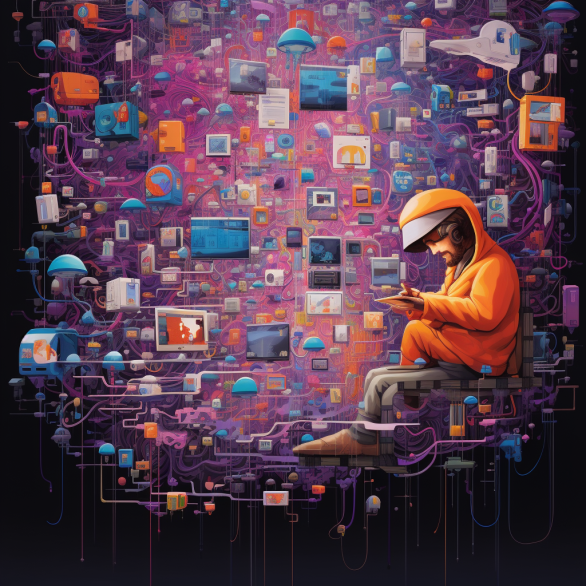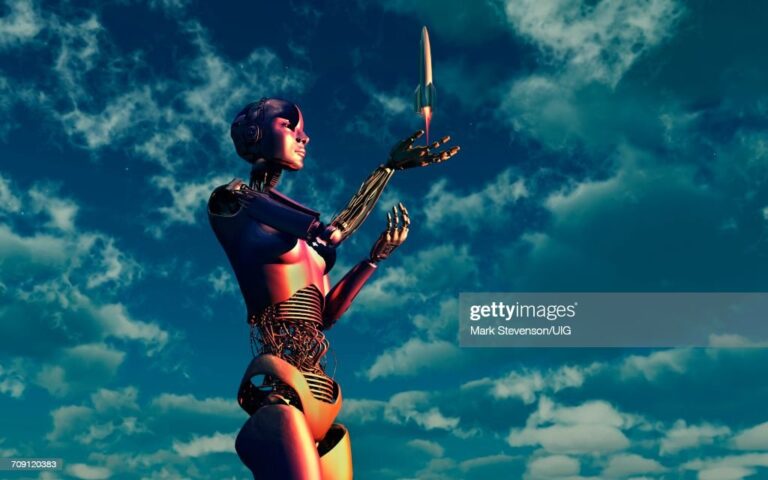
“In a world of endless information and constant connection, true cognitive autonomy is the art of filtering the noise, discerning the truth, and shaping your own narrative amidst the digital deluge.” Introduction Today’s digital age, the concept of cognitive autonomy…

“In the age of deepfake technology, reality is not always what it seems. It serves as a stark reminder of the importance of critical thinking, media literacy, and ethical responsibility in our digital world, where truth can be manipulated, but…

The debate surrounding ChatGPT's potential as either a companion or competitor depends on how humans choose to use this technology. Adopting a human-centered approach to its development and use, maintaining human oversight and control, and fostering transparency and accountability can ensure that ChatGPT remains a tool to enhance human life, rather than a replacement for it.

Artificial Intelligence (AI) presents many critical issues that require attention. Some of these include the potential for bias in AI systems, the need for ethical guidelines and regulation, and the impact of automation on employment. As AI continues to advance and become more prevalent in our daily lives, it is essential to address these issues to ensure that the technology benefits society as a whole.

The use of facial recognition technology and surveillance cameras raises significant privacy concerns and risks. While they offer benefits such as increased safety and security, there is a need to balance these with the protection of privacy rights. Appropriate regulations and ethical considerations are essential to ensure responsible and ethical use of technology.

The synergy between AI and Blockchain has the potential to transform industries and drive innovation. However, it is essential to approach this integration with a focus on ethics and responsibility. Best practices for ethical AI and Blockchain integration include establishing clear protocols for data privacy and security, ensuring transparency and accountability, and addressing issues of bias and discrimination.

Augmented Reality (AR) is a technology that allows for a digital overlay of the real world, creating an immersive and interactive experience for users. With AR, users can see computer-generated objects and information superimposed onto the real world, enhancing their perception of the environment around them. AR has a wide range of applications in industries such as gaming and entertainment, education and training, healthcare, advertising, and manufacturing. AR technology has the potential to enhance user experiences, improve visualization, increase productivity, reduce costs, and create new revenue opportunities. With continued advancements in hardware, AI integration, and user interfaces, the future of AR is exciting, with the potential to revolutionize the way we live and work.

Virtual reality (VR) is a technology that allows users to immerse themselves in a simulated environment, often through the use of a headset or other devices. With VR, users can experience everything from a roller coaster ride to a historical site visit, all from the comfort of their own home. The potential applications of VR are vast, including entertainment, education, healthcare, and more. While the technology is still relatively new and expensive, it has already had a significant impact on society and culture. As VR continues to advance, it has the potential to transform the way we learn, work, and play, unlocking new levels of creativity, innovation, and discovery.

Technology is playing an increasingly important role in transforming the way mental health treatment is delivered. From telemedicine and virtual therapy sessions to mental wellness apps and online support communities, technology is making mental health care more accessible, convenient, and effective for individuals seeking help.
ChatGPT is a large language model created by OpenAI based on the GPT-3.5 architecture. It is an AI-based platform designed to understand and generate natural language, allowing for seamless and dynamic communication between machines and humans. ChatGPT uses deep learning algorithms to analyze and understand the context of the conversation, enabling it to provide accurate and relevant responses to users' queries. With a vast repository of data and algorithms, ChatGPT is capable of performing a wide range of tasks such as language translation, text summarization, sentiment analysis, and content generation. Its innovative technology has revolutionized the way humans interact with machines, making communication faster, easier, and more intuitive.









